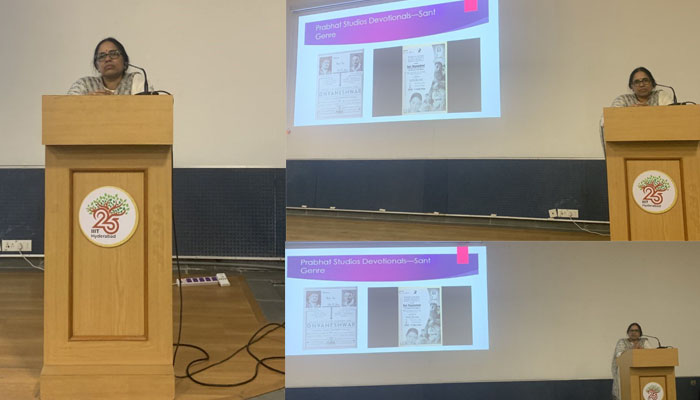Dr. Uma Maheswari Bhurgbhanda, English and Foreign Language University (EFLU) gave a talk on Cinema and Making of Citizen-Devotee on 27 April. In her talk she delved into the intricate dynamics between popular religion, cinema, and politics, as elucidated in her book, Deities and Devotees: Popular Cinema, Religion and Politics in South India. With a keen interest in understanding the phenomenon of possession among cinemagoers, particularly in the context of Telugu goddess films spanning from the 1940s to the 2000s, she looked at the practices of filmmaking and viewership.
Central to her exploration is the notion that citizenship ideals intersect with various forms of subjectivity which can be complementary or conflicting. She argues that citizens while watching these goddess films transform into citizen devotees. She highlighted the evolution of goddess films, noting a shift from a light-hearted narrative to narratives imbued with nationalist fervour. There also has been a shift in the portrayal of devotees, from humble to assertive and strident bhakta. She argued that the acts of possession and weeping in the theatres is not irrational, it is political. It can be viewed as defiance of dominant forms of power.


